Related Research Articles

"Margaritaville" is a 1977 song by American popular music singer-songwriter Jimmy Buffett from the album Changes in Latitudes, Changes in Attitudes. This song was written about a drink Buffett discovered at Lung's Cocina del Sur restaurant at 2700 W. Anderson Lane in Austin, Texas, and the first huge surge of tourists who descended on Key West, Florida, around that time. He wrote most of the song one night at a friend's house in Austin, and finished it while spending time in Key West. In the United States "Margaritaville" reached number eight on the Billboard Hot 100 chart, and went to number one on the Easy Listening chart, also peaking at No. 13 on the Hot Country Songs chart. Billboard ranked it number 14 on its 1977 Pop Singles year-end chart. It remains Buffett's highest charting solo single.
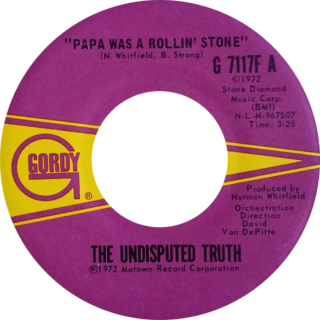
"Papa Was a Rollin' Stone" is a song originally performed by Motown recording act The Undisputed Truth in 1972, though it became much better known after a Grammy-award winning cover by The Temptations was issued later the same year. This latter version of the song became a number-one hit on the Billboard Hot 100.

"Islands in the Stream" is a song written by the Bee Gees and recorded by American country music artists Kenny Rogers and Dolly Parton. Named after an Ernest Hemingway novel, it was released in August 1983 as the first single from Rogers's album Eyes That See in the Dark. The song was originally written for Diana Ross in an R&B style but later reworked for the duet by Rogers and Parton. The Bee Gees released a live version of the song in 1998 and a studio version in 2001.
"War" is a counterculture era soul song written by Norman Whitfield and Barrett Strong for the Motown label in 1969. Whitfield first produced the song – an obvious anti–Vietnam War statement – with The Temptations as the original vocalists. After Motown began receiving repeated requests to release "War" as a single, Whitfield re-recorded the song with Edwin Starr as the vocalist, with the label deciding to withhold the Temptations' version from single release so as not to alienate their more conservative fans. Starr's version of "War" was a No. 1 hit on the Billboard Hot 100 chart in 1970, and is not only the most successful and well-known record of his career, but it is also one of the most popular protest songs ever recorded. It was one of 161 songs on the no-play list issued by Clear Channel following the events of September 11, 2001.

"Rapture" is a song by American rock band Blondie from their fifth studio album Autoamerican (1980). Written by band members Debbie Harry and Chris Stein, and produced by Mike Chapman, the song was released as the second and final single from Autoamerican on January 12, 1981, by Chrysalis Records. Musically, "Rapture" is a combination of new wave, disco and hip hop with a rap section forming an extended coda.

"The Unforgiven" is a power ballad by American heavy metal band Metallica. It was released as the second single from their eponymous fifth album Metallica. Though one of the slower tracks on the album, its chord progression is distinctly one of the heaviest ballads featured on the album. The song deals with the theme of the struggle of the individual against the efforts of those who would subjugate him.

"Radio Free Europe" is the debut single by American alternative rock band R.E.M., released in 1981 on the short-lived independent record label Hib-Tone. The song features "what were to become the trademark unintelligible lyrics which have distinguished R.E.M.'s work ever since." The single received critical acclaim, and its success earned the band a record deal with I.R.S. Records. R.E.M. re-recorded the song for their 1983 debut album Murmur. The re-recording for I.R.S. became the group's first charting single, peaking at number 78 on the Billboard Hot 100 chart. The song is ranked number 389 in Rolling Stone's 500 Greatest Songs of All Time. In 2010, it was added to the Library of Congress's National Recording Registry for setting "the pattern for later indie rock releases by breaking through on college radio in the face of mainstream radio's general indifference." The song was featured in the 1984 movie The Party Animal.

What Up, Dog? is a 1988 album by Was. It became the US group's breakthrough album worldwide and was ranked #99 on Rolling Stone magazine's list of the 100 Best Albums of the 1980s. The cover illustration was credited to Christoph Simon and Karen Kelly.
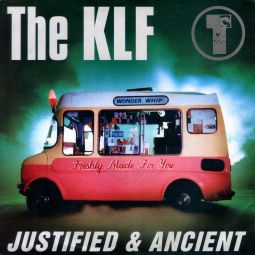
"Justified & Ancient" is a song by British band The KLF. It was featured on their 1991 album, The White Room, but its origins date back to the duo's debut album, 1987 .

"Jesus Freak" is a song by the American contemporary Christian music group DC Talk. Released on August 1, 1995, it was the lead radio single from the group's fourth album. The song was written and produced by Toby McKeehan and Mark Heimermann. Lyrically, the song is about standing up for the belief in Jesus Christ in the midst of persecution. Musically, the song has been described as alternative rock and grunge, with many reviewers and critics noting a similarity to the sound of Nirvana. It received airplay on both contemporary Christian music and alternative rock stations, formats that rarely interact. "Jesus Freak" earned DC Talk three GMA Dove Awards.
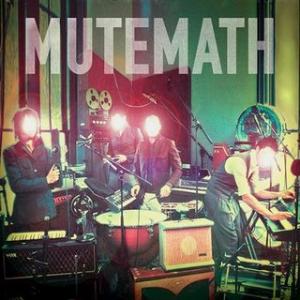
Mutemath is the first full-length album by Mutemath, independently released by Teleprompt. The album was initially packaged in a jewel case and was sold exclusively at concert dates on their 2006 album tour. The release date was January 19, the first date of the tour.

"Bring the Noise" is a song by the American hip hop group Public Enemy. It was included on the soundtrack of the 1987 film Less than Zero; the song was also released as a single that year. It later became the first song on the group's 1988 album, It Takes a Nation of Millions to Hold Us Back. The single reached No. 56 on the Billboard Hot R&B/Hip-Hop Songs chart.

"I Thank You" is a song written by David Porter and Isaac Hayes originally recorded by Sam & Dave, released in early 1968. The single was Sam & Dave's final release on Stax Records, reaching #9 on the Billboard Pop Singles chart and #4 on the R&B chart. Shortly after its release, Stax severed its distribution deal with Atlantic Records and Sam & Dave, who were actually signed to Atlantic and loaned out to Stax, began recording for Atlantic proper. The song begins with Sam's spoken introduction that goes: "I want everybody to get off your seat,/ And get your arms together,/ And your hands together,/ And give me some of that old soul clapping". First, Sam sings the refrain, plus the first verse, and the refrain, while Dave sings the second verse, the refrain, and the third verse, with both Sam and Dave sharing on the repeated "Thank Yous" portion. Following a brief instrumental, Sam sings the refrain, with Dave, joining him, on the Coda with the repeated "thank yous".
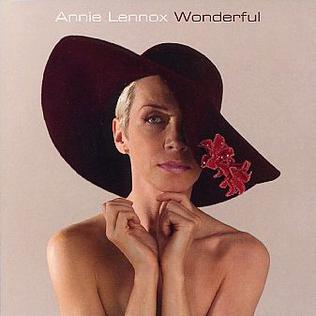
"Wonderful" is a song by Annie Lennox, released as the third and last single from her album Bare in 2004. It was released as a CD single and 12 inch single in the United States and only as a promotional single elsewhere. The single topped the Billboard Hot Dance Club Play chart for a week and became her fifth number one on that chart. No music video was made for this song.

"One Step Closer" is the debut single of British pop group S Club Juniors, written by Cathy Dennis, Mike Percy, and Tim Lever. Produced by Nick Foster and Mike Rose, it was released as the first single from their first album, Together (2002). "One Step Closer" was issued on 22 April 2002 in the United Kingdom, where it peaked at number two on the UK Singles Chart, losing out to the number-one spot by 1,000 copies. The song served as the theme for the US reality television series American Juniors (2003).
"Heroes and Friends" is a song co-written and recorded by American country music artist Randy Travis. It was written with Don Schlitz. It was released in January 1991 as the second and final single from his album of duets, Heroes & Friends and his only song on the album that was not a duet. The song opens and closes the album. "Heroes and Friends" peaked at number 3 on the Billboard Hot Country Singles & Tracks chart and reached number 1 on the Canadian RPM Country Tracks chart.
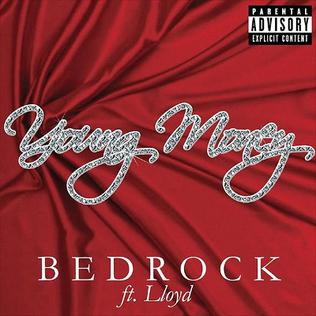
"BedRock" is the second single by hip hop group/record label Young Money Entertainment from their debut collaboration album, We Are Young Money. It is performed by acts that were signed under Young Money, including rap verses by Lil Wayne, Gudda Gudda, Nicki Minaj as her debut single, Drake, Tyga, Jae Millz, with the chorus performed by Lloyd. It was released as a CD in the United Kingdom on March 22, 2010. "BedRock" is also featured as a bonus track on the Japanese, New Zealand, and the "Complete Edition" 2020 reissue editions of Nicki Minaj's debut studio album, Pink Friday.

"Freak" is a single by British musician Estelle. The song, which features Canadian rapper Kardinal Offishall, was produced by French DJ David Guetta. It contains an interpolation of "Back to Life" by music group Soul II Soul in the chorus. "Freak" was featured on the soundtrack to Step Up 3D and the reissue of David Guetta's album One Love, entitled One More Love.
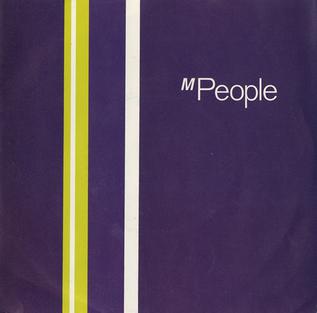
"How Can I Love You More" is the debut single from British band M People taken from their debut album, Northern Soul. It was written by Mike Pickering and Paul Heard, and produced by M People. The single was first released in 1991 peaking at number 29 and then re-released on 25 January 1993 with several new remixes. The song was a bigger hit and peaked at number eight on the UK Singles Chart.

"The Zone" is a song by Canadian singer the Weeknd featuring Canadian rapper Drake. It was originally recorded for the Weeknd's 2011 mixtape Thursday, the song was later remastered and released as the third single for his 2012 album Trilogy. It was released as a digital single on November 16, 2012, by XO and Republic Records. The song serves as the first collaboration between the two artists.
References
- 1 2 "Allmusic - Billboard Awards – Was (Not Was)". Billboard. Retrieved 2008-12-04.
- 1 2 3 "The Official Charts Company - Was (Not Was)". Official Charts Company . Retrieved 2008-11-09.
- ↑ "Discografie Was (Not Was)". 2003-2012 Hung Medien. Retrieved 2012-12-28.